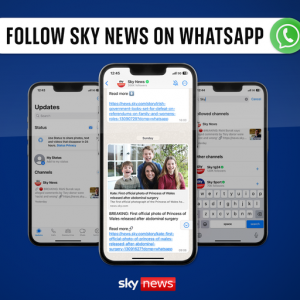TikTok CEO to testify before House panel about app’s security and ties to China
Shou Zi Chew, chief executive officer of TikTok Inc., speaks during the Bloomberg New Economy Forum in Singapore, on Wednesday, Nov. 16, 2022. The New Economy Forum is being organized by Bloomberg Media Group, a division of Bloomberg LP, the parent company of Bloomberg News. Photographer: Bryan van der Beek/Bloomberg via Getty Images
Bloomberg | Bloomberg | Getty Images
TikTok CEO Shou Zi Chew will testify before a House panel on March 23 about the app’s security and privacy practices and its ties to China through parent company ByteDance.
The House Energy and Commerce Committee announced the hearing on Monday, saying it would be Chew’s first appearance before a congressional panel.
“ByteDance-owned TikTok has knowingly allowed the ability for the Chinese Communist Party to access American user data,” E&C Chair Cathy McMorris Rodgers, R-Wash., said in a statement. “Americans deserve to know how these actions impact their privacy and data security, as well as what actions TikTok is taking to keep our kids safe from online and offline harms.”
The hearing announcement comes as the company’s negotiations with U.S. government over how to secure its app in the country have continued to drag. TikTok has been engaging with the Committee on Foreign Investment in the U.S., which can determine if certain risk mitigation measures are adequate to dampen national security concerns.
Still, those negotiations have reportedly been delayed at least as of last month, as officials continue to worry about the implications of the app’s ownership by Chinese parent company ByteDance. That’s because Chinese-based companies can be compelled to hand over data to the government there on request. In the past, TikTok has assured U.S. officials and lawmakers that it does not store U.S. user data in China to mitigate that risk, but that’s done little to assuage fears.
Fears over TikTok’s national security and privacy implications for consumers have spanned both sides of Congress, and stretched across the Trump administration into the Biden administration.
Lawmakers passed a ban on TikTok on government devices in a year-end legislative package, citing security fears. A TikTok spokesperson called the passage of the bill “a political gesture that will do nothing to advance national security interests,” in a statement at the time, adding that the agreement CFIUS was reviewing would “meaningfully address any security concerns that have been raised at both the federal and state level.”
TikTok did not immediately respond to a request for comment on the House hearing.


